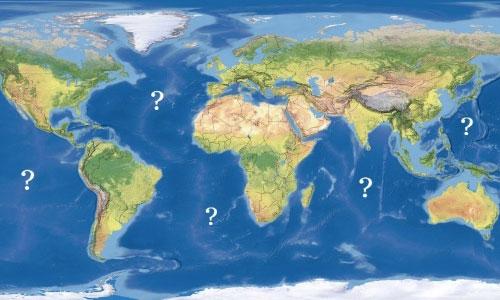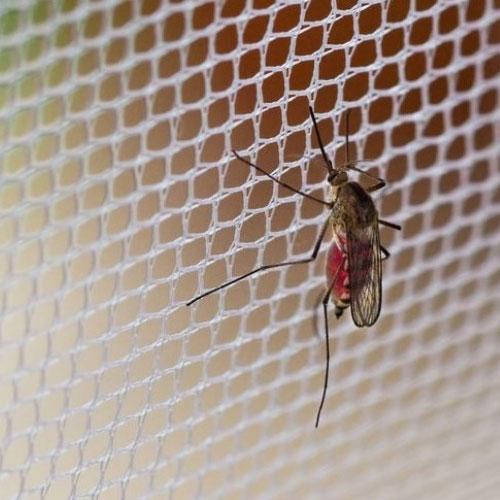RCPSG Postgraduate Diploma in Travel Medicine
This course has been designed in line with the Faculty of Travel Medicine’s publications 'Good Practice Guidance for Providing a Travel Health Service' and 'Recommendations for the Practice of Travel Medicine'
Course Information
The aim of this course is to develop and support healthcare professionals in their role as travel medicine practitioners.
It offers an academic base that assists individuals to become autonomous and reflective practitioners in the delivery of travel medicine services. The course is delivered at postgraduate level and carries 120 credit points at SCQF Level 11.
The content and level of this course facilitates growth and development of cognitive, leadership and practical skills. This will enhance travel medicine practitioners’ practice, by enabling them to make sound judgements and apply best clinical practice or evidence-based theory to support their decision making. This will ultimately support client care, in situations prone to rapid change and subsequently, improve travellers’ health.
If you complete this course, you'll be eligible to join the College as a Member of the Faculty of Travel Medicine (MFTM). You'll also be able to continue your studies to master's level with a MSc Advanced Practice (Travel Medicine) from Glasgow Caledonian University. Details of each of these can be found below.
Course duration and intakes
This course consists of eight postgraduate modules delivered over a period of 12 months. The course will be delivered by specialists in travel medicine using a blended model of two residential elements and online interactive learning.
Students will be expected to attend and contribute to online educational and peer support platforms. Cohort three will begin in May 2025 with a residential week of learning.
The second residential is planned to take place in October 2025. The residential weeks are mandatory, though we'll consider applications from students requesting online participation.
Fees
The Diploma fee is £4,395 and this will include Affiliate Membership of the Faculty of Travel Medicine and access to TRAVAX for the duration of the course.
Once accepted onto the course, a deposit of approximately 10% of the course fee will be due to hold your place. The remaining payment will be made over two further instalments, one due by your start date and the other due six months later. Dates will be provided upon enrolment.
Entry and Language Requirements
Applicants must be able to satisfy the general admission requirements of the Royal College of Physicians and Surgeons of Glasgow.
Academic Requirements
- Applicants must hold a UK bachelor’s degree with honours (2:1 or above) in medicine and surgery, nursing, dentistry, paramedic science or pharmacy or;
- Applicants must hold a UK postgraduate qualification in a health-related subject based on clinical experience or;
- Applicants must hold a bachelor’s degree with honours (2:1 or above) from a recognised international provider of higher education in medicine and surgery, nursing, dentistry, paramedic science or pharmacy or;
- Applicants must hold a postgraduate qualification in a health-related subject based on clinical experience from a recognised international provider of higher education or;
- Applicants must have a record of on-going professional development in their respective field if they don't hold a degree. This record must cover professional development with a significant clinical component from when the applicant began working in their field. This only applies to those who have been practicing without a degree since the year outlined in the table below.
| Degree | Working since |
|---|---|
| Medicine | – |
| Nursing | 2009 |
| Dentistry | – |
| Paramedic Science | 2018 |
| Pharmacy | 1967 |
Professional Requirements
- Applicants must hold professional registration with the governing body for their profession in the country which they're resident.
- Applicants must have professional experience in travel medicine practice or aspire to practice in travel medicine when they complete the Postgraduate Diploma in Travel Medicine.
English Language Requirements
Applicants with English as a second language will be assessed for suitability during the application process. English language requirements for this level of study include:
International English Language Testing System (IELTS) Academic module (not General Training):- Overall score 6.0
- No sub-test less than 5.5
TOEFL IBT: 78; no sub-test less than:
- Reading: 17
- Listening: 17
- Speaking: 17
- Writing: 17
Membership of the Royal College of Physicians and Surgeons of Glasgow
Those who successfully complete this course will be eligible to join the College as a Member of the Faculty of Travel Medicine (MFTM). Non-members starting this course will be offered complimentary Affiliate Membership for one year and access to TRAVAX while studying.
Progression to MSc Advanced Practice (Travel Medicine)
Upon successful completion of the Postgraduate Diploma in Travel Medicine, you'll be eligible to continue your studies to master's level with Glasgow Caledonian University.
You'll be awarded a MSc Advanced Practice (Travel Medicine) if you complete a 60-credit dissertation module over two trimesters in a six-month period. The dissertation would build on the work started in your Postgraduate Diploma. For more information or to sign up, go to the GCU MSc Advanced Practice page.
Module Overview
Module 1
Epidemiology, Immunology and Travel Risk Assessment

By the end of this module you will have knowledge and understanding of:
- Aspects of epidemiology in relation to the subject of travel medicine.
- Principles of immunology in relation to travel medicine.
- Critical evaluation of the principles underpinning a risk assessment.
- Current key principles of behaviour and the human factors that lead individuals to make decisions which impact their health when abroad.
Module 2
Non Vector Borne Infections

By the end of this module you will have knowledge and understanding of:
- The epidemiology, pathophysiology, clinical manifestations and impact of non vector borne infections.
- Effective strategies for prevention of non vector borne infections, including immunisations to maximise protection of at-risk populations.
- The relationship between travellers, host populations and non-vector borne infections and potential implications for travellers in the context of emerging infections.
- Communication of risk assessment and behaviour modification strategies in the preparation of overseas travel, in relation to non vector borne infections.
Module 3
Vector Borne Infections

By the end of this module you will have knowledge and understanding of:
- The various disease vectors and how they transmit infection.
- Epidemiology and health implications of vector-borne infections with particular emphasis on malaria and current control approaches to prevent these infections.
- Insect borne infection advice including bite prevention, vaccination where appropriate and in relation to malaria, chemoprophylaxis available and the factors affecting compliance with these measures.
- The principles of diagnosing and treating malaria and other vector borne illnesses and resources that support accurate clinical decision making in relation to prevention and treatment of malaria in travellers.
Module 4
Environmental Factors and Travel

By the end of this module you will have knowledge and understanding of:
- The principles of environmental conditions in the context of traveller’s health
- The environmental impact overseas travel has on host communities alongside the travel industry economy.
- Human pathophysiology and physiological effects of flying and the interventions that help prevent illness.
- Risk of trauma to travellers and strategies for prevention.
- Travel insurance and access to medical care overseas.
Module 5
Research Methods

By the end of this module you will have knowledge and understanding of:
- Research philosophy.
- Types of research and research approaches.
- The research process, including literature searches, research design and methodology.
- Data management and analyses.
Module 6
The Complex Traveller - Pre and Post Travel

By the end of this module you will have knowledge and understanding of:
- Categories of travellers and the complex nature of their special travel requirements.
- Risk factors associated with different categories of travellers and strategies and mechanisms for advising them for overseas travel.
- Management of travellers returning with commonly presented infectious diseases.
Module 7
Medical Conditions and Travel

By the end of this module you will have knowledge and understanding of:
- Medical conditions and the potential impact they could have on a traveller’s health.
- Complexities and implications relating to travellers with medical conditions, and current strategies used to prepare them for overseas travel.
Module 8
Governance, Legal and Ethical Considerations

By the end of this module you will have knowledge and understanding of:
- The legal implications and ethical aspects that may affect some travellers.
- Differences in legal structures, clinical governance and practice in relation to the delivery a travel medicine services.